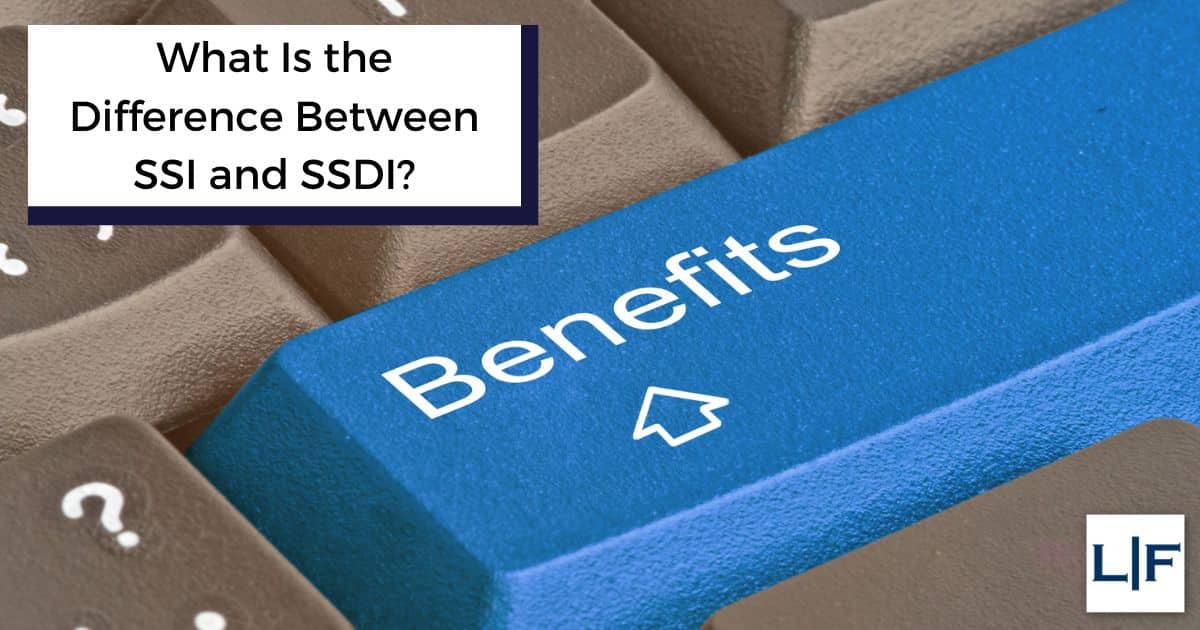The SSI and SSDI disability programs both offer benefits for disabled or blind people. Medical eligibility for disability is determined in the same manner for both programs. This means that individuals who qualify for disability benefits under one program may also qualify for benefits under the other program if they meet the additional financial eligibility requirements. It is important to note that there are some differences in the eligibility requirements and benefit amounts between the two programs.
The Social Security Disability Insurance (SSDI) program is funded through payroll taxes, while the Supplemental Security Income (SSI) program is funded through general tax revenues.
SSDI is based on how much the applicant has worked and paid into Social Security. SSI is a needs-based program that looks at the applicant’s income and resources.
The amount of an individual’s SSDI payment depends on their work history and earnings record, whereas the amount of an individual’s SSI payment depends on their level of financial need and a maximum monthly payment amount that the government has set.
What Is SSI (Supplemental Security Income)?
Supplemental Security Income is a program that gives money to disabled people who need it based on their income and assets. It is not paid for by the Social Security trust fund, but rather by general tax funds. SSI has nothing to do with work history; it is based strictly on financial need. The program helps disabled people, elderly people, and blind people who don’t have much money or other resources. The amount of the monthly payment varies depending on the recipient’s living situation and other sources of income. To meet the SSI financial requirements, you must have less than $2,000 in countable assets (or $3,000 for a couple) and a very limited income.
Disabled people who meet the income requirements for SSI are also eligible to receive Medicaid in the state they live in. Medicaid provides health coverage for eligible individuals and families with low incomes and resources. It covers a wide range of medical services, including doctor visits, hospital care, prescription drugs, and more. People who qualify for SSI are also usually qualified for food stamps. SSI benefits can begin on the first day of the month after the month in which you file your application.
What Is SSDI (Social Security Disability Insurance)?
SSDI is available to adults who have not yet reached their full retirement age (67 for almost everyone) and have earned 40 work credits, with 20 of those in the past 10 years. Unlike SSI, which provides Medicaid coverage, SSDI recipients receive Medicare benefits. However, there is a 2 year waiting period from the time of the end of the 5 month waiting period for payments before Medicare coverage starts.
If you have paid enough FICA tax then your spouse and minor children may also receive a payment each month. The amount of the monthly benefit for everyone depends on your earnings record, much like the Social Security retirement benefit.
Which Pays More - SSI or SSDI?
The SSDI payment amount is based on the amount of FICA taxes paid when an individual was working. Some self-employed workers may learn that they are not covered for SSDI benefits because they did not pay the FICA tax (self-employment taxes). Their business finances were structured to pay as little tax as possible, which may have saved them some money at the time, but leaves them without income when they are too sick to work.
The average SSDI payment in 2023 is $1,483 a month. SSDI is based on your earnings record, SSDI recipients may receive much more or much less than this. The maximum Social Security benefit payment is $3,627 per month. If the payment is less than the standard SSI payment, and you are otherwise financially eligible, you may also receive a partial payment from the SSI program each month.
In 2023, the federal SSI payment standard is $914 per month for an individual. (Some states augment this with a small additional payment.) For couples, the federal SSI payment standard is $1,371 per month. Because SSI is a needs based program, the payment amount can be reduced based on household income and living arrangements.
If you have questions about Social Security disability programs, the attorneys at Lunn & Forro are happy to help. Just call our office today to schedule a free consultation, and learn about the benefits that you may be able to receive!
Related Posts

When am I Considered Disabled by Social Security?
Social Security considers you to be disabled when you have a serious medical condition that prevents you from working. To determine whether a person is

What Is SSI?
Supplemental Security Income (SSI) is a safety net for certain individuals with low income and little assets. SSI provides money so these people can meet

What Is SSDI – Social Security Disability Insurance?
SSDI, which is also called Social Security Disability Insurance, is a government program that gives disabled American workers a monthly income. When you suffer from

Can You Receive Inheritance While on Social Security Disability?
Yes. Inheritance can affect Social Security disability benefits. Much depends on the type of benefit you receive. Below, we discuss the implications of inheritances in
Can I Qualify for Both SSI and SSDI Disability Benefits?
Yes. In some cases, you may be able to qualify for both Supplemental Security Income (SSI) and Social Security Disability Insurance (SSDI) benefits. The Social
What are the Disability Listings for a Social Security Claim?
The disability listings can make it easier for you to qualify for Social Security disability benefits. If you are considering filing an application for Social
How Do I File a Disability Appeal?
You gave Social Security Disability all the information they asked for and agreed to a medical exam, but your disability claim was still denied. It
What If I Miss My Social Security Appeal Deadline?
What is the Social Security Disability Appeal Deadline? The most common Social Security Disability appeal deadline is 60 days. If your initial claim is denied,



